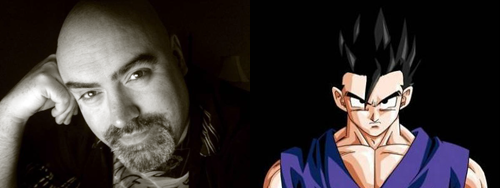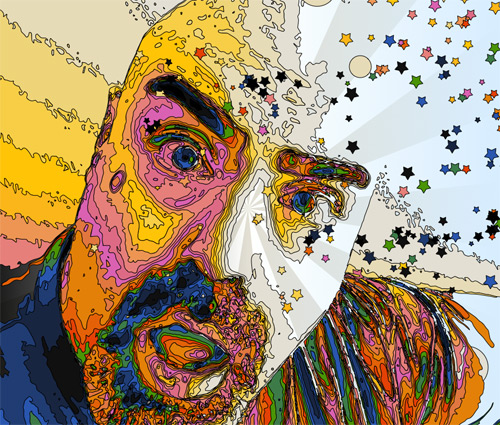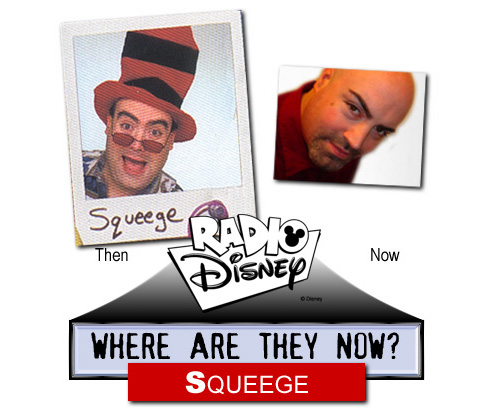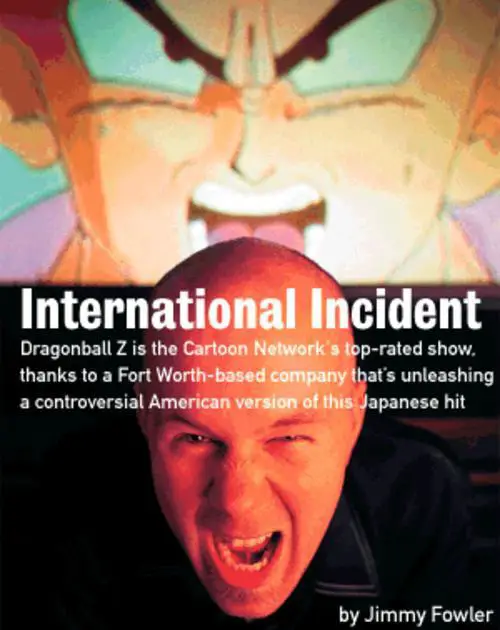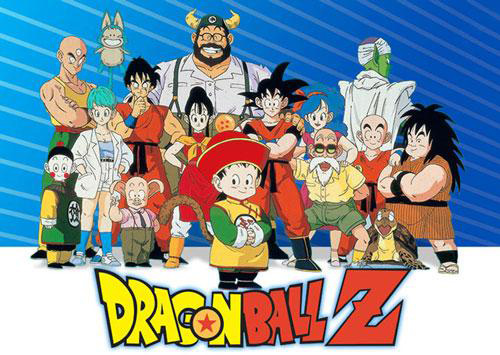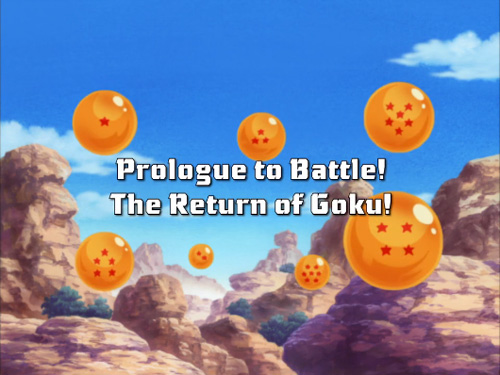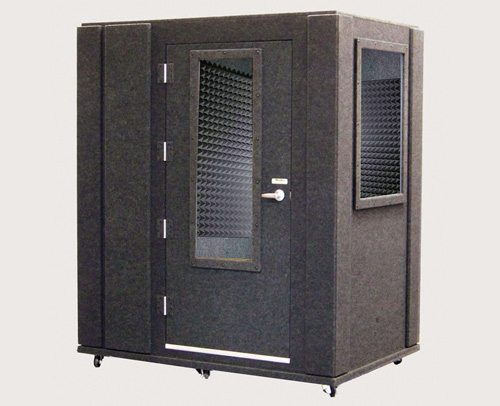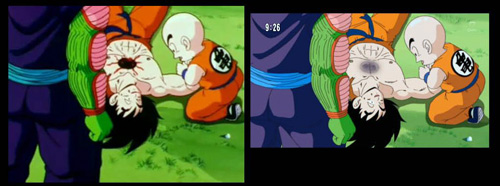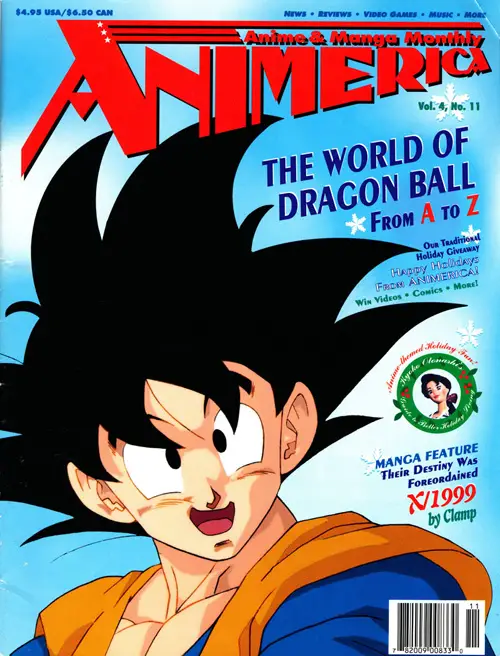Kyle Hebert Spills the Senzu Beans
Kyle Hebert reveals the story of dubbing Dragon Ball Z at FUNimation during the “golden years” in this exclusive DBZ interview on The Dao of Dragon Ball.
You’ll get to learn how Kyle got his big break at FUNimation, became the voice of Teen Gohan and the iconic voice of the Dragon Ball Z Narrator, what the dubbing process was like, and how he came up with his iconic voices.
He also has a few words of advice for anime fans and aspiring voice actors.
Start reading the interview!
The Artist Within
Derek: I really appreciate you coming on The Dao of Dragon Ball. When I asked for an interview you said right away, “Yeah, I’ll do it!” And I love that.
“FUNimation is the house that Dragon Ball built.” It was a flagship title, a huge thing that exploded in popularity. But nobody really knows the inside story except for a few of those DVD’s that have behind the scenes footage of the voice actors doing their thing and Christopher Sabat talking about production.
There’s never been an extensive interview, that I know of, just focused on one of the Dragon Ball voice actors. I feel like yours is very special because you are the Narrator, the one who tells the story, and that’s a very important role.
Kyle: Yeah, totally. And I was already a fan of Dragon Ball Z from years previous and fast forward to 2000, here I am trying out for the show. It was surreal. I had no idea I would get to read for a show I was a fan of, and second of all, be my first foray into character based voice acting.
Derek: I read through a lot of your interviews, and for the most part the interviewers all asked the same type of questions. What’s the hardest part about being a voice actor, what do you like the most, things like that. That’s all been done, so today I want to go super deep into Dragon Ball and discuss the questions you won’t be asked anywhere else.
In my perspective, voice actors are artists, first and foremost, so I want to help show the artistic side of Dragon Ball to the Dragon Ball fans out there.
Kyle’s Big Break
Derek: Let me bring people up to speed. As a child of about 7 or 8 you were a big fan of the Looney Tunes and were really impressed that Mel Blanc voiced all those characters. You also liked playing around with tape recorders and being an amateur disc jockey of sorts.
You grew up with the dream of doing voice over work and you even majored in Radio/TV/Film and earned your Bachelor’s from the University of North Texas in 1993. Shortly afterward you began your radio career as an intern for ABC Radio Networks in Dallas. And from there you got an on air talent job for the Z Rock format and in 1996 became a DJ and character voice actor for Radio Disney.
Kyle: Yes.
Derek: Alright, so you were at Radio Disney for several years, and then something happened in the year 2000 that would forever change your life. Can you describe what happened?
Kyle: Yeah. Toonami had become a huge success and Dragon Ball Z was the #1 rated show. Radio Disney was looking for, “What are the kids into these days? We should get some prizes, some merchandise to give away on the air.” So the marketing and promotions department at Radio Disney took a tour of FUNimation.
To that point I couldn’t track them down, I had no idea where they were, hadn’t seen a listing, didn’t know any other actors. I had seen a cover story on a local Dallas paper where Chris Sabat, I think, was on the cover of that, just a free weekly local arts and entertainment based thing. Like, wow, FUNimation’s here doing Dragon Ball Z, I wish I had an in.
Suddenly the radio station folks, they ended up partnering up with FUNimation and giving away action figures and toys, and they found out Dragon Ball Z was about to have open auditions, and everyone at Radio Disney knew how badly I wanted to do voice work for animated characters. They said here’s the number, give ‘em a call. I was like, “Oh my gosh, this is awesome!”
It was literally 12 years ago this month, well, August of 2000 when I went in and tried out. Teen Gohan was the very first thing I read for, and some other bit part characters. Two weeks after that Chris Sabat himself called me and said “Congratulations, we’d like to hire you to do some voice work.” I was like, “Oh my god, I can’t believe it.”
I got off the phone with Chris and tried to call my parents. They weren’t there. I tried to call my best friends. They weren’t there. I was just pacing in my apartment, I couldn’t believe that literally this dream was coming true.
Narrating a Timeless Tale
Kyle: I started off doing bit part voices on the Bardock special and towards the end of the Cell Saga. Once the Cell Saga was over and went into what’s afterward, some miniscule filler episodes, I got called in and did some bit parts on that, then started the High School arc, the Great Saiyaman Saga.
They said “Congrats, we like your audition for Gohan. You got it!” I was like, “Oh my gosh. This is surreal.” I didn’t have to voice match a character because the Canadian dub didn’t go past the second season at that point. [Derek: Right, the Ocean Group.] I got to make it my own and fortunately they were on board with my instincts where I picked the character in the audition.
Within a matter of months Dale Kelley left, and he was the narrator for FUNimation.
I used to walk around my apartment imitating Doc Harris, the Canadian Narrator for Z. Yeah, talk about surreal.
Derek: I was about to say. So how did you feel when you got the part? I imagine you were really excited to be chosen for the Narrator because it’s such an incredibly long series, and not only is it fun, but that’s a guaranteed paycheck week after week.
Kyle: Job security is a nice thing, especially on such a huge franchise as that. 291 episodes, redubbing many of them for the uncut versions, tweak the script here and there.
By the time Kai came around they went with another actor, but, you know, I respect that because I live in Los Angeles now and have for the past 7 years, and I would have had to flown out on my own dime. It wouldn’t be worth it since anime pays really, really, really low.
Derek: I was going to ask you about that, what happened with Kai?
Kyle: Yeah, just to go in a more serious, more faithful direction I guess. Chris and the higher ups decided to try some different peeps. I think Doc Morgan sounds really good as the Narrator. I mean I could have given them that performance but it’s not my call. And again it would have been financially prohibitive of me to fly there every week to record stuff. Really couldn’t have been done.
Derek: Right, I guess that makes sense. Some fans asked me, “What happened?” I know they were disappointed you weren’t there, but the voice that is there, he did a great job.
Because the Narrator starts and ends every episode, the voice became synonymous with DBZ. How did you decide what type of voice to give the Narrator? Was it a suggestion by one of the producers, such as Barry Watson, or was it directed by Christopher Sabat?
Kyle: Yeah I think it did come down from Chris directly. He’s who I worked with the most. Occasionally Barry Watson would direct if Chris wasn’t available. It kind of came on down, “We need you to try to voice match what Dale Kelley was doing.” In the beginning I was doing that, and then it eventually evolved as many of the cast performances did over time.
I think if you listen to Chris Sabat’s Vegeta now it sounds nothing like what he was doing originally, a decade ago. I think the more time any actor spends with the material, you’re just going to get better at it and more comfortable with it. If I could go back in time and record the Saiyaman Saga again, I wish I could, but it’s a moment in time that represents the start of my voice over career. It’s literally something that ignited every other opportunity that I’ve been very blessed to get.
Derek: Right. Do you know, where did the idea of saying “Next Time on Dragon… Ball… Zeeeee…” at the end of each episode come from?
Kyle: That was Doc Harris on the original Ocean Dub, he had done that whole shtick and that’s the way it was. Dale Kelly was imitating him, so I inherited that.
Derek: Yeah, there it is!
Kyle: Yep. Haha. [Still in character] Previously! Last time! Next time! This time!
Derek: Yep. Everybody loves it.
Kyle: Haha.
Screaming His Heart Out
Derek: In the early 2000’s when FUNimation was first dubbing Dragon Ball Z they were a much smaller company than they are now. There were fewer people wearing more hats and doing everything by themselves, and Dragon Ball was the flagship title. What was it like to be there at the time?
Kyle: I felt eternally blessed to be a part of something that was a pop culture sensation, with the boom in anime and anime getting mainstream exposure on Cartoon Network. It was just fantastic. It launched a chance for me to travel the country and in some cases the world, to go to conventions and see fans face to face, do things I could never have envisioned.
Working in radio I kind of just did my job. I had a lot of fun working in radio, but it started to get a little bit stale. The enjoyment of stepping into the booth for a different reason kind of reignited it. It was like, “Okay, this is where my passion really is.”
I wanted to do radio and animation voice work. Once I had a taste of that with Dragon Ball Z… fortunately I had gotten more work on some other shows like Blue Gender and Yu Yu Hakusho, it was like, “Aww yeah, this is amazing. I want to keep this momentum going.” It’s so much fun.
Derek: I am also an aspiring voice actor and I know a lot of the people who are Dragon Ball fans, or just anime in general, they hear the characters, the story, they want to be that. I think a lot of people are envious of the voice actors that make it work, they make it happen, they do that in their lives. That’s great.
Kyle: Yeah, something like anime, it’s a technical skill to be able to do the lip sync, act, and a characters voice. It’s like you’re juggling all these things at once.
FUNimation of course is the big juggernaut of the industry right now, but when people say, “I want to move to Texas and work for FUNimation,” it’s like well, you gotta open your mind because in the world of voice acting it’s a freelance gig. It’s like spaghetti, you gotta throw it at the wall and see what sticks. You’ve got to try and do as much as you can.
The only problem with the ‘move to Texas and work for one company theory’ is what if that one company never calls you to audition? Then what? What are you going to fall back on? That’s why things were ingrained in my brain as a voice actor who wanted to do character stuff, particularly cartoon work, it’s like, well, you gotta go to the West Coast. That’s where all the gigs are.
So I left FUNimation, left my full time radio job, to the world of freelance. Being a self-employed voice actor in Los Angeles and struggling for many years, but it’s been the right move for me personally. I’ve taken the good with the bad.
Derek: Back then you were recording in their studio, correct?
Kyle: Oh yeah, yeah. They used to be in this old bank building. Eventually they expanded to this much bigger, warehouse style office building. It’s a little bit closer to where my folks lived, and still do, in the Dallas area. It’s actually convenient because it’s kind of close to the airport, so if I ever flew in and had to record, it’d be just down the highway. “Oh, this is easy. That’s great.”
Derek: Can you share a story or two from the dubbing process? There’s a rumor, actually I think it was on one of the DVD’s, is it true that actors passed out in the booth from screaming so much?
Kyle: I think so. I think Justin Cook may have, Eric Vale, or Sean. I know I nearly did.
Derek: Really?
Kyle: One episode of DBZ had about five Kamehameha’s in full force with super long screaming, the power up, the whole constipation yell.
It was pretty trippy because you can’t have AC pumping in the booth because the mic will pick it up. It would get very hot in this… it looks like a porta potty you’re stepping into, on wheels even. It’s what they call a “whisper room.” But in the Z days I was lucky I even fit inside it because I’m 6’ 3”, kinda tall, I had to hug the walls almost with my arms because it was pretty tiny.
They had an old Goku t-shirt wrapped around a music stand, and on the music stand we’d have our scripts, they’d have a little catch thing right outside of the door that had all the episodes we were recording.
We’d probably do a DVD’s worth at a time. I’d get called in every couple weeks or so. We’d just rat it all off, one character at a time, I’d do all the Gohan stuff and then come back and do the Narrator.
Of course in anime dub work it’s all reliant upon the lip sync issue. Narrator is an off screen character so instead of matching visuals I just had to match when the Japanese Narrator starts and stops.
Derek: I see. That really helps describe what it was like back then, with that tiny box and everyone trying to make it work. Thank you for telling that story.
To Censor, or Not to Censor…
Derek: Now obviously all of you guys poured your heart and soul into it. What was your perspective on how the English dub of Dragon Ball was received by the American audience? Because while there were a lot of fans, I remember there was a bit of controversy over it. Some of the even more intense fans got together and created sites such as DBZ Uncensored and the DBZ Otaku Alliance to try and get FUNimation to change how they dubbed the show. What’s your take on that whole thing?
Kyle: The thing about working on broadcasting, especially children’s broadcasting, is that we have broadcast standards and you have to respect those. That’s just the society we live in.
By the time we were actually dubbing uncut versions of Z, I mean my jaw dropped sometimes seeing how, “This show is really violent. My god. The airbrusher’s and the Photoshopper’s must have been really working overtime to make it palatable for Cartoon Network.”
I always looked at it like this. You see censored anime on TV, it’s a big commercial [enticement] to buy it uncut. I realize that for many years DBZ wasn’t available uncut, but I understand both sides of the fence. You want to see it in its pure form and it’s not available, and you’re just putting out this watered down version, but that watered down version brought a whole new audience to the Dragon Ball saga, and lifelong fans.
Fortunately it made enough money they could warrant, like, “Okay, this is a cash cow we can absolutely make our investment back and then some, and profit by releasing the uncut versions of the shows.”
Now we live in the Internet age where you can get both versions if you want. I’m sure you could track down the heavily edited, or if you still had the old DVD’s or VHS, you can watch that it in its form as a piece of nostalgia, or you can grab the orange brick sets [aff] or the Dragon Boxes [aff], or to a smaller extent the 2 Blu-rays [aff] that came out and then they stopped, to get it back in its pristine form.
Derek: Right. Thank you very much for answering that question. I know some people might have dodged it or avoided the question altogether and I really appreciate you addressing it and giving your take on it.
Kyle: Yeah, yeah!
Telling the Dragon Ball Story
Derek: Now I want to ask you about the Dragon Ball story. Akira Toriyama is most well-known for drawing great art, he’s a manga illustrator, but as the Narrator and story teller of Dragon Ball Z, what do you think of the story and the characters?
Kyle: What appealed to me, when I first heard about Dragon Ball it was in a magazine called Animerica. I would go to my comic store and read about, “Oh, what’s all the latest buzz in Japan?” I read this huge main article that went on for pages, “Oh, Dragon Ball, this sounds very interesting.”
I was used to watching Charlie Brown or Speed Racer, you watch shows for years and the characters never age. This was the first time I had seen an anime where the characters literally do grow up, and you grow up with them and you see the adventures they go on.
I liked the fact there’s a tonal shift. The original Dragon Ball series was more comedy based, and Z focused on action, and GT tried to take Goku back to his base form and it didn’t really work, and by the time they had got to the action again the ratings were so low that they just pulled the plug. I know Akira Toriyama really had nothing to do with GT, so many people just call it a glorified fan fic.
People to this day still swear that Dragon Ball AF is going to happen. Like, really?
Derek: Haha. Yeah, I’ve written extensively about AF. I have an interview coming up with the original creator of the Dragon Ball AF drawing that everybody says is Super Saiyan 5 Goku, and it’s actually not. It’s a guy named Tablos!
Kyle: Oh, wow.
Derek: Those articles are on my blog right now if you want to read them but the interview is going to be conducted shortly and should be up within the next couple weeks.
Kyle: Cool!
Derek: So I have a challenge for you. How would you describe the 291 episode long story of Dragon Ball Z to someone else in a quick sound bite?
Kyle: … Uhhh, wow. A story of an alien coming to earth, dealing with other aliens, haha, uhh… and, golly, there’s just some things that when you describe what’s going on in the story it sounds like you’ve been smoking crack.
Derek: Hahaha.
Kyle:
It does have a really strong sense of character and people that you can sympathize with, and their plight, their honor, and of course the crazy over the top action and entertainment. I think it really does speak to people of all audiences.
Again I understand and sympathize that the changes to the show had to be made for it get broadcast so the kids could even… understand that this was almost pre-Internet, or the Internet was in its infancy kind of, not to the stage where it is now…
Derek: I would say in some cases it’s even synonymous with anime, or it used to be, and for the generation that grew up with it, still is.
Kyle: Yeah. Now the downside is that there appears to be a glut of shows. There’s like, too much. You have to sift through a lot of clones of clones of better shows to find the real diamonds. They are so few and far between, I feel like telling today’s generation, “Hey, you want to see a good show? Well back in my day…”
Derek: Speaking of which, Dragon Ball Z has a reputation in America for being “The #1 action anime of all time,” which it is, but do you think there’s anything deeper to the series, such as a meaningful plot, philosophy or message?
Kyle: Probably the sense of characters, the father and son dynamic, the sense of family, and trust, and basic values.
I’ve heard from fans through the years that the show is very inspirational to them, to maybe try something, martial arts, or just get through a tough time in their life. It’s been a real high point for them.
Derek: Here’s something I recently enlightened to. Dragon Ball is a very voyeuristic experience. The whole story is told by this third person and we never really get to go inside the minds of Goku, Vegeta, Gohan or the others aside from some occasional internal dialogue where they’re thinking about stuff. But really, the story is told from the perspective of the Narrator. The Narrator knows everything about Goku, the history and timeline of the Dragon Ball cosmos, from the Kaio’s to the evolution of different races, the afterlife and all this stuff. He is completely omniscient, he’s ever present, and yet he’s the least talked about character in the whole series by fans, and I think it’s because he’s formless. He’s the most important character in all of Dragon Ball because without the Narrator the Dragon Ball story wouldn’t exist.
Kyle: Hahaha.
Derek: What do you think of that?
Kyle: He’s there to book end things. I’ve heard from fans through the years that you can have a love-hate relationship because you know when you’re hearing him, if you just channel surf, “Oh this is either the beginning or the end of the episode.” He might show up in the middle, but generally you either know you’re getting a recap or a preview of what’s to come.
Derek: Right, and a lot of times people would be like, “Oh, man the Narrator is coming on already? How could the episode be over so soon?”
Kyle: Right, right.
Derek: So from your perspective then, who is the Narrator?
Kyle: Hahaha. A faceless man! I don’t know, haha. Because I don’t speak Japanese I don’t really know how the performance was intended to be in Japanese. But I know that the “monster truck tractor pull” approach was in the Ocean dub and it’s what we went with in the early days and kept it through to the end. I guess that’s what resonates with the fans.
I know there’s a more serious approach and not as over the top in Kai, and while Kai seemed to chop the filler out, which sounds great in theory, it’s like, “Let’s address the #1 complaint that people have about DBZ. It takes 50 episodes to power up or to get a fight done, or whatever.”
It moved at a pretty brisk pace. You got through in less than 100 episodes, up to the Cell saga anyway, and then of course it gets cancelled, haha. But you get the fans going, “You know what? I admire what they were doing, but honestly that’s not the show I grew up on.”
Derek: Right, and the 291 episodes, what was it like to work on such a long series, I mean, after years of watching the story unfold and seeing the characters grow up and mature, I’m curious, I want to know, did that have any effect on your own growth as well? Did it inspire you in any way or change you as a person?
Kyle: It was like a wild roller coaster ride.
It never truly has been over because once we were done with the dub, then the Budokai games kept coming out, and we did those once a year, and we did Burst Limit and all that, and now we’re up to this Kinect game, which actually recycles old audio. But we’ve gotten to revisit the characters through the years, and just when you think it’s over, it’s not.
Derek: Yeah, Dragon Ball is eternal. It never dies.
The Dragon Lives Forever
Kyle mentioned that the end of Dragon Ball is not really the end of Dragon Ball. It keeps going in the hearts of fans and in future voice acting gigs.
It also keeps going in our interview! So check back soon for Part 2 of The Dao of Dragon Ball interview with Kyle Hebert.
' . $comment->comment_content . '
'; } } else { echo 'No comments found.'; }